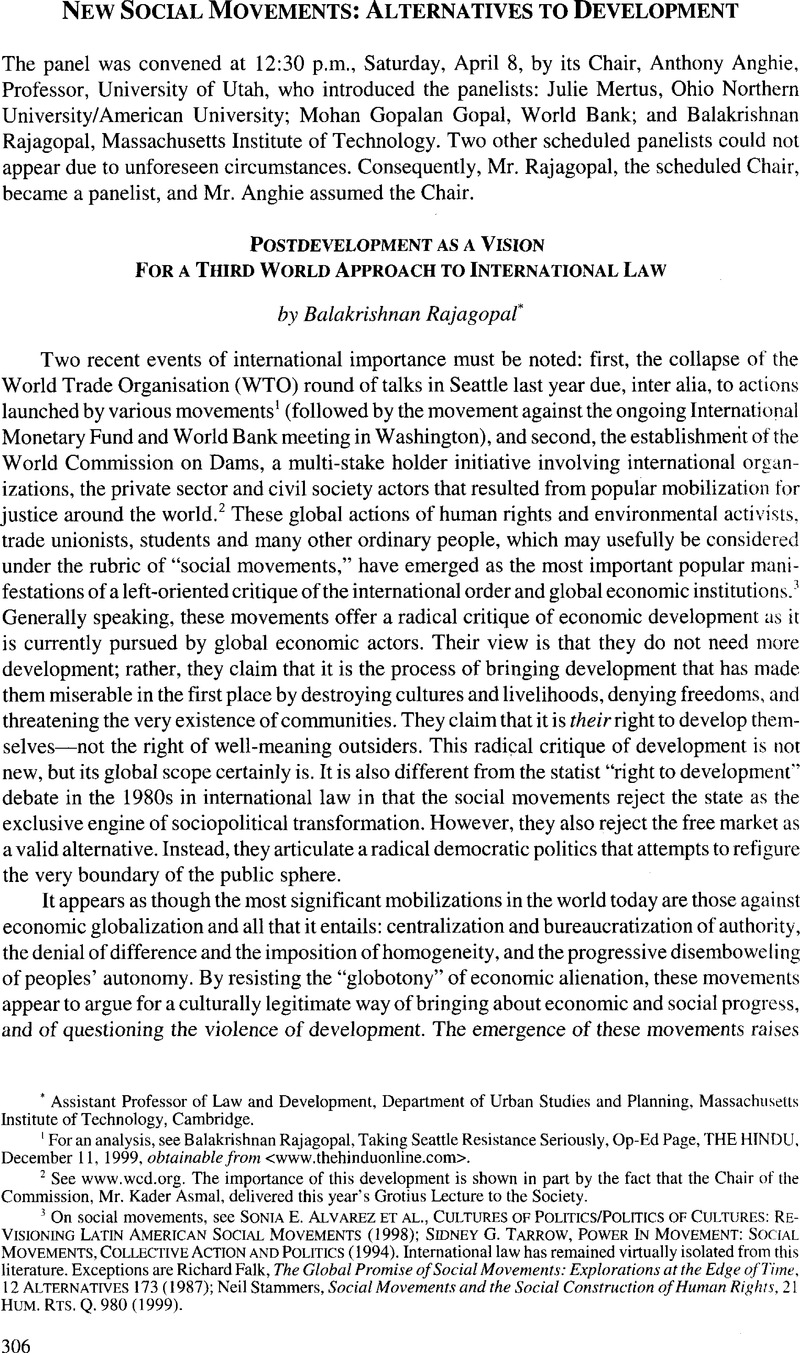Article contents
Postdevelopment as a Vision for a Third World Approach to International Law
Published online by Cambridge University Press: 28 February 2017
Abstract

- Type
- New Social Movements: Alternatives to Development
- Information
- Copyright
- Copyright © American Society of International Law 2000
References
1 For an analysis, see Balakrishnan Rajagopal, Taking Seattle Resistance Seriously, Op-Ed Page, The Hindu, December 11, 1999, obtainable from <www.thehinduonline.com>.
2 See www.wcd.org. The importance of this development is shown in part by the fact that the Chair of the Commission, Mr. Kader Asmal, delivered this year’s Grotius Lecture to the Society.
3 On social movements, see Sonia E. Alvarez Et Al., Cultures of Politics/Politics of Cultures: Revisionino Latin American Social Movements (1998); Sidney G. Tarrow, Power in Movement: Social Movements, Collective Action and Politics (1994). International law has remained virtually isolated from this literature. Exceptions are Falk, Richard, The Global Promise of Social Movements: Explorations at the Edge of Time, 12 Alternatives 173 (1987)CrossRefGoogle Scholar; Stammers, Neil, Social Movements and the Social Construction of Human Rights, 21 Hum. Rts. Q. 980 (1999)CrossRefGoogle Scholar.
4 I borrow the term “pluriverse” from Gustavo Esteva & Madhu Suri Prakash, Grassroots Postmodernism: Remaking the Soil of Cultures (1998).
5 See The Development Dictionary (Wolfgang Sachs ed. 1992); The Post-Development Reader (Majid Rahnema & Victoria Bawtree eds., 1997).
- 1
- Cited by


